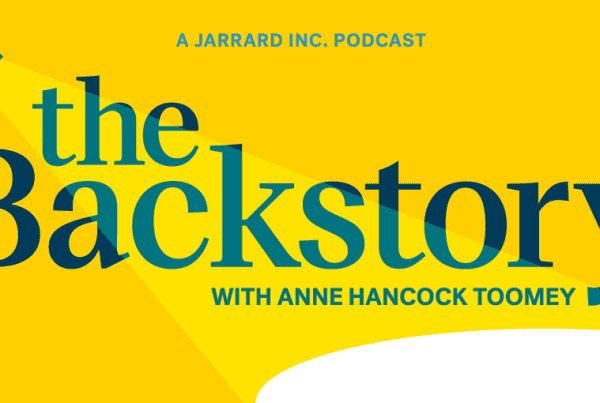Want to be notified as soon as we publish new content like the Quick Think? Subscribe here.
The Big Story: Biden Insists There’s No Recession as He Confronts Latest Economic Risk
“To paraphrase an old political adage: If you’re explaining how recession calls are made, you’re losing.”*
What it Means for You
President Biden knows: The words you will use and won’t use matter.
To thoughtlessly toss words around like bean bags or too-carefully parse them can make you appear tone deaf, or deceptive, or both. Just ask President Clinton about his “linguistic existential crisis” over the word “is.” (TBT: What is the meaning of ‘is’?)
But before you get too comfortable, don’t think it’s just a DC problem. Healthcare has its own semantic crisis.
“Charity care,” anybody? Or “burnout”? or “value”? What do you mean when you say these words and can someone without an MHA appreciate them?
It’s an urgent question as healthcare wrestles to be understood by audiences inside the house who care for patients and outsiders who pay for it and regulate it.
The words we deploy to describe an event, or a policy or a problem, come weighted with baggage and consequences. We’re not just defining a term, we’re capturing a moment and reflecting our leadership (or lack of it) through them.
Before we speak, we need to ask whether we’re about to obfuscate or communicate. If we’re defending our definitions, if we’re explaining our explanations, we’re already losing.
Two exhibits for consideration
Exhibit A: “Charity Care” and “Community Benefit”
A recurring question is whether not-for-profit hospitals truly earn their tax exemptions. And when the Lown Institute reported rankings on community benefit and found that 82 percent of private nonprofit hospital systems spend less on charity care and community investment than the value of their tax breaks, some well-meaning advocates responded with essentially a, “Well, actually…” You can see the arms crossing.
To be clear: These advocates are not wrong. Accounting for charity care and community benefit is, in fact, complex. Definitions are not clear or consistent and, as a result, are hard to measure across markets or geographies
We’re not saying it’s easy; we’re saying it’s vitally important. If we don’t offer clear and true words, others will define the terms for us and not to our benefit.
Here’s Wall Street Journal healthcare reporter Melanie Evans, who found a pithy way to describe charity care. Speaking about hospital charity care on a WSJ podcast last week, she stated, “The most direct measure of giving back is giving away medical care for free.” Not wrong. That’s a lot simpler than explaining why resident training and research and Medicaid under-reimbursement qualify as “charity care.”
Yes, research and parking stipends for residents may very well be part of a larger system designed to provide benefit to the community. Medicaid under-reimbursement is a shortfall that must be accounted for. But try explaining to the public how that equates to direct impact. While a real benefit, they can translate poorly.
After all, the questions about charity care are not really about taxes and spreadsheets, they’re a test of whether we’re fulfilling our mission to care for the poor and vulnerable at our doorstep. And that’s what matters when making your case.
Exhibit B: “Burnout.”
“If there’s one word that’s been thrown around a lot over the past two years, it’s burnout.
And clinicians hate it,” wrote Beth Kutcher, a senior managing editor at LinkedIn News in the post “Why doctors and nurses hate the word ‘burnout.’
“Burnout is a term that’s used across a range of industries to describe the mental, emotional or physical exhaustion that comes from work-overload. But clinicians who were on the frontlines of the pandemic say ‘exhaustion’ doesn’t begin to cover what they’re feeling…The word ‘burnout,’ clinicians say, places the burden squarely on them. It implies that they couldn’t handle the pressure, without giving any acknowledgment to the brutal working conditions they faced.”
We recommend you read every word.
The Takeaway
Here’s the thing. Most ideas have technical definitions. Those definitions are useful, critical even.
But people also have gut reactions to terms and ideas. Do we care what something is called? Absolutely. Yet what we feel about it matters more. Think about the last time you were making a point and someone replied, “Technically it’s not…” or “Well, actually…” or, “Yes, but…” Or maybe you were that person. Regardless, those phrases probably elicited a defensive, annoyed reaction. Right?
Our advice this week? Think about whether the way you’re talking about hot-button issues is a) consistent with what you’re doing and b) satisfying to that gut feeling people have about the topic.
(Yes, we know. There are legal constraints and HR rules that must be part of your lexiconic calculations – with a heavy emphasis on “part”).
The good news is that you, as a communicator and leader, have something approaching a magic wand. If you can translate AND show what you’re doing in a way that people can appreciate and understand, you’ll advance your cause significantly. Can you still talk about the details? Yes. But they need to come after people’s gut definition of phrases like “charity care” has been addressed. The difference is in explaining the context, not forcing your definition.
If you find yourself having to offer complex documents and long answers to explain other issues, it might be good to show vs. tell. Step away from pursuit of the perfect definition and articulate your intent and actions. Here are some other terms to chew on.
- Price Transparency – “Well actually, we have a machine-readable chargemaster…”
- Value-based care – “Technically, 25 percent of our contracts are risk-based”
- Fair market compensation – “In reality, our compensation packages are designed to…”
So, have your definition and your actions that bring that definition to life. Know what you’re doing and why. Point to areas where that activity makes a direct impact on the issue at hand. Use the words consistently throughout your organization.
Then, you’ll be ready when the reporter calls or you stand before that medical staff town hall. You’ll be able to defend your status with a message that means something to those hearing it. You’ll have a definition that you have established and can demonstrate – not one that someone else has created for you.
*And just to close the loop on whether or not the U.S. is in a recession…we’re not economists but based on Friday’s job reports, well, it looks like President Biden has a point.
This piece was originally published over the weekend in our Sunday Quick Think newsletter. Fill out the form to get that in your inbox every week.
Subscribe to Jarrard Insights & News
"*" indicates required fields




